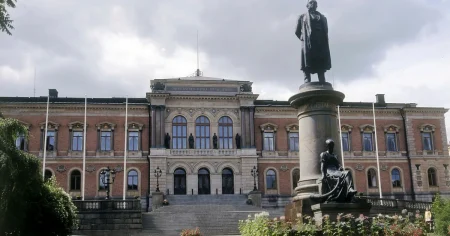The Rise of Brain Rot in a Warming World
The Oxford English Dictionary has declared "brain rot" as the word of 2024, a term originating from young people’s self-diagnosed mental state after overconsuming meaningless content on social media platforms like TikTok. This "perceived decline in mental or intellectual abilities" transcends individual experience, reflecting a broader societal malaise, a collective brain rot, a new pandemic spreading rapidly and potentially fatal. This alarming trend coincides with the hottest year on record, pushing the Earth’s temperature to levels not seen in 125,000 years, shattering records and exceeding scientists’ worst predictions. We are leaving the "corridor of life," the era of climate stability that fostered civilization, and descending into an age of unprecedented environmental and intellectual decline.
The Paradoxical Response to Climate Crisis and the Decay of Language
Paradoxically, the more undeniable the evidence of climate change becomes, the more pervasive the silence and the more fervent the denial. Fossil fuel giants continue to invest heavily in new oil and gas exploration, while climate deniers and science skeptics gain ground globally. This self-deception, the willful ignorance of impending danger, echoes Stefan Zweig’s observation in his 1939 novel "Beware of Pity": “In my experience, people in their desperate search for self-preservation tend to rid themselves of dangers they are dimly aware of by simply declaring them non-existent.” This denial is facilitated by the decay of language, the breakdown of meaning in a world increasingly detached from reality.
The Unheimlich: A World That Looks and Sounds Familiar but Is Fundamentally Changed
This linguistic shift creates a profound sense of unheimlich, an unsettling eeriness, where things appear and sound normal, yet everything is fundamentally altered. We speak of "super election years" while witnessing the global collapse of democracy. We refer to incoming "presidents" and their "administrations" when, in reality, we are facing aspiring autocrats and their cadres of power-hungry plutocrats. The erosion of language’s connection to reality is not merely a stylistic shift or a matter of degrees of truthfulness; it’s a severing of the anchor between words and the world they represent.
The Broken Covenant with Language and the Rise of Unaccountable Power
Democracy hinges on a responsible relationship between language and reality, where both leaders and citizens prioritize truthful, considered communication. Traditionally, deviations from this norm were met with diminished trust and consequences. However, in this new world, the rules have changed. Figures like Donald Trump epitomize this detachment, operating in a realm where outrageous claims and blatant falsehoods are not only tolerated but embraced. His rhetoric, a chaotic blend of disjointed associations and fabricated narratives, creates a distorted landscape that devalues meaning and vulgarizes the world. The past loses its weight, the future its significance, as everything dissolves into a dizzying, babbling present. The old plea, "Call forth the power of truth from the world’s ends," is replaced by a cynical inversion: "Call forth the power of lies, and let us wallow in delusion."
The Algorithmic Assault on Human Reason and the Technocratic Embrace of Fascism
This pervasive brain rot extends beyond mere political rhetoric, attacking the very foundations of our humanity. The algorithms of screens and social media prey on our predictable tendencies, nurturing them until our capacity for independent thought withers and dies. This perhaps offers a concrete interpretation of dystopian fears about artificial intelligence "wiping out humanity." AI might not require violence; our brains, willingly surrendering to decay, will render us obsolete. An uncomfortable truth underlies our current predicament: a profound and pervasive stupidity. Tech oligarchs, the new power brokers exemplified by Elon Musk, harbor a disdain not just for democracy but for humanity itself. Like hubristic gods, they pursue space rockets and artificial intelligence to reshape the world in their image, echoing the anti-humanism of early fascism, a rejection of the earthly, vulnerable, and messy aspects of our existence in favor of speed, machines, and metal.
Combating Brain Rot: Lessons from the Potato Blight and the Irish Famine
The antidote to this intellectual epidemic mirrors the response to physical blights, requiring both political and personal action. The Irish potato famine of the early 1800s serves as a cautionary tale. The devastating consequences were exacerbated by wealthy landowners in parliament who obstructed reforms that could have mitigated the crisis, prioritizing personal enrichment over public welfare. A million people perished from starvation and disease, while another million emigrated to escape the devastation. Ironically, their descendants now face a president and a class of digital and fossil fuel barons driven by the same logic, poised to dismantle the safeguards that have protected human reason from decay. The solution? Cultivate healthy intellectual habits: scrutinize information, think critically, and safeguard your mind from the pervasive rot. Like tending a garden, we must protect our cognitive landscape from the blight of misinformation and intellectual laziness.














